Holistic Psychotherapy Integration
The practice of psychotherapy involves a deep exploration of the human psyche and emotions. Traditional Chinese medicine (TCM) is a holistic approach to healing that has been used for thousands of years. Integrating psychotherapy with TCM and other holistic practices can lead to a more comprehensive approach to treating mental health issues. In this blog post, we will discuss the benefits of integrating psychotherapy with TCM and other holistic practices, as well as some specific techniques that can be used.
The Benefits of Integrating Psychotherapy and TCM
Integrating psychotherapy and TCM can lead to a more complete understanding of the mind-body connection. TCM recognizes that emotions and mental health can affect physical health, and vice versa. Psychotherapy can be used to address emotional issues, while TCM can be used to address physical symptoms. By treating the whole person, rather than just the symptoms, a more effective treatment plan can be created.
Additionally, TCM offers a unique perspective on health and wellness. Instead of focusing solely on Western medical diagnoses, TCM looks at the individual as a whole, taking into account factors such as diet, lifestyle, and emotional state. By incorporating TCM into psychotherapy, clients can benefit from a more personalized approach to treatment.
While exploring the integration of psychotherapy with traditional Chinese medicine, it's vital to recognize foundational practices such as acupuncture. Delving into the 'Benefits of Acupuncture' reveals how this ancient technique can enhance our mental and physical well-being, serving as a cornerstone in the holistic treatment plan.
Techniques for Integrating Psychotherapy and TCM
One technique for integrating psychotherapy and TCM is to incorporate acupuncture into treatment. Acupuncture involves the insertion of thin needles into specific points on the body to stimulate the flow of energy, or qi. This can help to relieve physical symptoms such as pain, as well as emotional symptoms such as anxiety and depression.
Another technique is to use herbal remedies. TCM uses herbs to treat a variety of physical and emotional ailments. By working with a TCM practitioner, clients can receive personalized herbal remedies to address their specific needs.
In addition to TCM, other holistic practices can be integrated into psychotherapy. Mindfulness meditation, for example, can be used to help clients become more aware of their thoughts and emotions. Yoga and tai chi can also be used to promote relaxation and reduce stress.
As we explore holistic approaches to wellness, it's essential to consider treatments that address both the mind and body. Facial Acupuncture, featured in our blog post, offers not only physical benefits but also promotes relaxation and emotional well-being. Discover how integrating Facial Acupuncture into holistic therapy can lead to a more balanced and harmonious life.
In the realm of holistic health, the synergy between the mind and body plays a pivotal role. As we delve into the integration of psychotherapy with traditional Chinese medicine, the Healing Power of Acupuncture emerges as a vital element. This ancient practice, beyond merely alleviating physical discomfort, fosters a deeper sense of well-being by rebalancing our body's energy flow. It's this harmonious blend that accentuates our journey towards comprehensive health.
Delve into the holistic realms of Eastern medicine where ancient practices like Acupuncture for Allergies offer a serene escape from the discomfort of seasonal sensitivities. Our articles weave together the time-honored wisdom of acupuncture with the integrative approach of holistic psychotherapy, guiding you on a transformative journey towards balance and well-being.
Conclusion
Integrating psychotherapy with TCM and other holistic practices can lead to a more comprehensive approach to mental health treatment. By treating the whole person, rather than just the symptoms, clients can benefit from a more personalized approach to treatment. Techniques such as acupuncture, herbal remedies, and mindfulness meditation can be used to address both physical and emotional symptoms. By working with a therapist who is trained in both psychotherapy and TCM, clients can receive a well-rounded approach to mental health treatment that can lead to improved overall health and well-being.
Embarking on a holistic health journey opens up a world of traditional healing practices, among which acupuncture stands out. If you're curious about this ancient technique and asking yourself, How Does Acupuncture Work? we invite you to explore further. Acupuncture, with its roots in Traditional Chinese Medicine, offers a unique perspective on wellness by harmonizing the body's energy flow, contributing to both mental and physical health.
Additional Resources
If you are interested in learning more about integrating psychotherapy with TCM and other holistic practices, here are some additional resources to explore:
- "The Tao of Psychology" by Jean Shinoda Bolen
- "Between Heaven and Earth: A Guide to Chinese Medicine" by Harriet Beinfield and Efrem Korngold
- The National Center for Complementary and Integrative Health (NCCIH) website: https://www.nccih.nih.gov/
